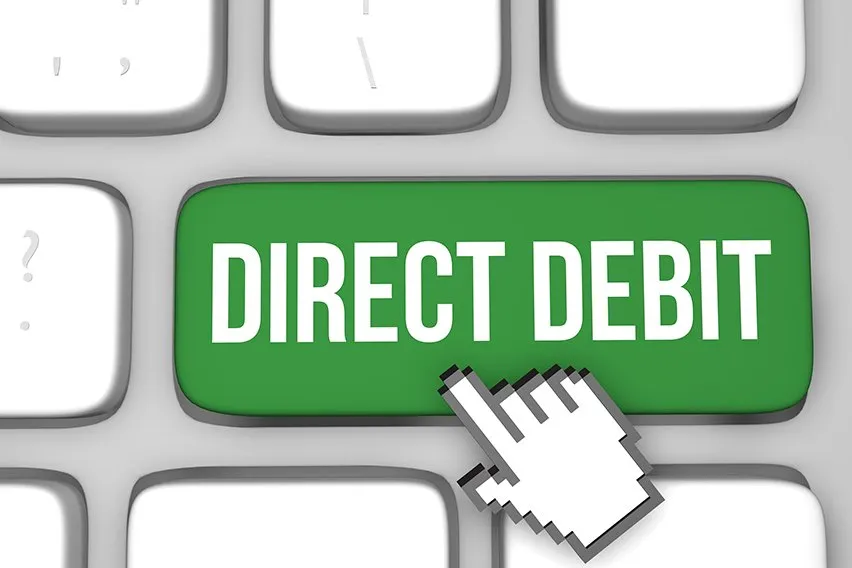What is the Direct Debit Guarantee?

The Direct Debit Guarantee is the reason why so many people trust this method of payment. Both as an individual paying regular bills and as a business taking regular payments from clients. It’s considered the safest payment method in the UK.
To start with, banks and building societies that administer Direct Debit payments all belong to the Direct Debit Scheme. To successfully complete the approval process, they must pass a series of rigorous vetting checks. And once part of the scheme, they continue to be monitored to ensure proper procedures are followed.
But it goes even further than that. The Direct Debit Scheme requires its members to consistently apply the Direct Debit Guarantee to all Direct Debit transactions.
This is good for you as an individual making Direct Debit payments, and as a business offering this as one of your payment methods. Here’s why…
Here’s What We’ll Cover:
What Are the Commitments of The Direct Debit Guarantee?
What Kind Of Direct Debit Mistakes Might Happen?
What If My Bank Doesn’t Agree?
Circumstances When The Direct Debit Guarantee Doesn’t Apply
What Are the Commitments of The Direct Debit Guarantee?
The Direct Debit Guarantee lays out 4 main commitments.
Universal Application
All banks and building societies that process Direct Debits are bound by the guarantee. No exceptions.
Notification Of change
You must be told at least 10 days before payment is due if the amount, frequency or date is going to be different to your original agreement. This is more fully explained in FreshBooks guide ‘How To Set Up a Direct Debit For Payments’.

Refunds For Mistakes
If there are any Direct Debit payment mistakes, you’re entitled to an immediate refund of the full amount.
Power To Cancel
As an individual making a Direct Debit payment, you have the power to cancel it at any time. You need to follow the bank or building societies protocols. For example, you may need to cancel in writing (by email or post).
Cancelling a Direct Debit with your bank doesn’t mean you don’t owe the company – check the contract carefully. Read our complete guide, ‘How To Cancel A Direct Debit’, to avoid any possible pitfalls when you make a cancellation.
What Kind Of Direct Debit Mistakes Might Happen?
Only 0.2% of Direct Debit payments are made in error, but mistakes do happen and it’s good to know what to look out for. Remember, these are all covered by the Direct Debit Guarantee Indemnity.
- Date: If the payment is taken out on a different date to the one you originally agreed.
- Amount: change to the payment amounts you first signed up to, or the amount given in a subsequent notification.
- Frequency: A Direct Debit is taken more or less frequently than planned, like weekly instead of monthly.
- Cancelled: You cancelled the Direct Debit with your bank or building society, but see from your bank statements that the payment is still coming out of your account. This may simply be slow processing of your cancellation request, but they should be acted on immediately.
- Authorisation: You never authorised the Direct Debit to start with. This may be an indication of fraudulent payments.
- Non-payment: You set up a Direct Debit but your financial organisation doesn’t make the payment, causing you to lose out.
- Notification: You didn’t receive proper advance notice of any changes to your Direct Debit payment.
In all of these cases, your bank and building society are bound by their commitment to the Direct Debit Guarantee and you have excellent consumer protection.
Banks and building societies must reply to any payment complaints within 15 days. And this doesn’t mean one of those ‘we’ve received your complaint and are processing it’ emails. It means a final response that resolves the issue.
What If My Bank Doesn’t Agree?
Usually, if you talk to someone at your bank or building society, you can sort out a Direct Debit error quickly and painlessly. But occasionally they won’t just refund your money. Once you’ve gone through their hierarchy, if you’re still not happy, you can get in touch with the Financial Ombudsman.
Given the rarity of Direct Debit errors, the number of complaints that go this far are small. But it’s good to know that there’s this extra layer of consumer protection in place, just in case.
The Financial Ombudsman then starts a full investigation of the complaint. They’ll use all the bank or building society’s electronic records of the Direct Debit instruction, authority and the history of related payments. If they establish an error on their part, they then look into why they didn’t honour the Direct Debit Guarantee straightaway and your actions to rectify the situation to date.
Historical Claims
The Financial Ombudsman states: “Your customer might make a claim under the direct debit guarantee for payments going back over a long period of time. In this case, we think it’s fair for you to ask for evidence of an error before paying a full and immediate refund.”
Complaint Upheld
If the Financial Ombudsman upholds the complaint against a bank or building society they can compel them to apologise, refund and compensate their customer financially.

Circumstances When The Direct Debit Guarantee Doesn’t Apply
You can’t claim a refund of mistaken payments in the following circumstances:
- You’re in dispute with the company you’re paying (not the bank or building society)
- You didn’t get the goods or services the payments were for
- You forgot to cancel the Direct Debit
- You paid on your debit card
- You returned what you paid for
- You “don’t agree with the company’s policies, practises or ethics”
And when the bank does agree?
They will give you an immediate refund, informing the business through a Bacs DDICA message about the indemnity claim.
In your business capacity, avoiding the cost of indemnity Direct Debit payments is easy. It’s a simple combination of complying with the rules of the Direct Debit scheme and delivering your usual excellent customer service.
- Give your clients proper advance notice if anything about their payments is changing.
- Be communicative and approachable (of course you are!), so your customers feel they can talk to you about any issues.
- Make sure you get onto any cancellations requests immediately – there is no time buffer here.
We know, you’re already doing it all!
RELATED ARTICLES

 What Are Capital and Reserves & How to Calculate in Balance Sheet
What Are Capital and Reserves & How to Calculate in Balance Sheet Learn How to Calculate NPV (Net Present Value)
Learn How to Calculate NPV (Net Present Value) What is Forensic Accounting?
What is Forensic Accounting? What is Sharpe Ratio? An Extensive Guide
What is Sharpe Ratio? An Extensive Guide Activity-Based Costing (ABC): Definition, Example & Process
Activity-Based Costing (ABC): Definition, Example & Process Cost-Benefit Analysis: An Extensive Guide
Cost-Benefit Analysis: An Extensive Guide